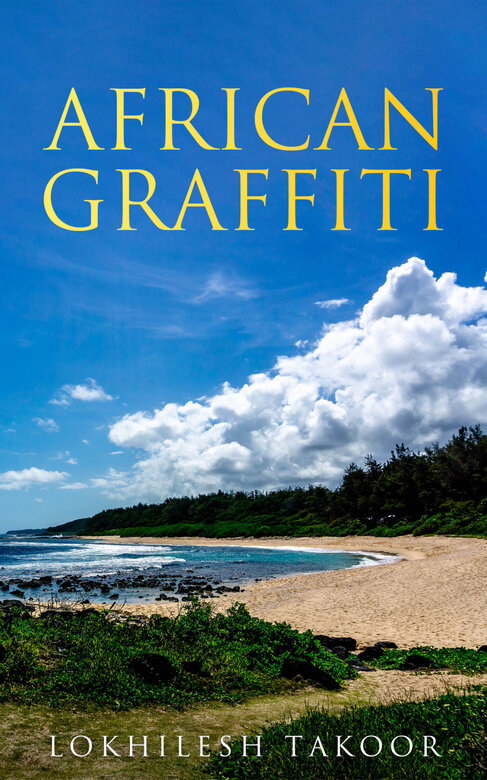
Following the author’s wandering career and adventurous spirit, African Graffiti by Lokhilesh Takoor offers a thoughtful story of self-reliance, courage, and the ageless search for belonging.
Takoor’s journey begins in Madagascar, where his work as a field engineer opened doors for advancement, while his affable personality gained him strong connections. However, the uncertain nature of politics and quick twists of societal opinion forced him to leave, once again seeking new open spaces and safer shores to explore.
The author’s professional skills took him across various African nations, giving him a broad-spectrum introduction to a variety of cultures, work practices, cuisines, military regimes, and social norms. From island life on Madagascar and Comoros to tense negotiations in Botswana, AK-47 wielding militants, and shady business dealings in smoke and whiskey-filled rooms, this is a sprawling tale of survival, street smarts, and business savvy.
His attitude is generally one of honest curiosity, excitement, and vulnerability, though there are occasionally some blunt observations about the places he visits and the people he meets. Stereotypical beliefs and assumptions about African nations and cultures are unfortunately common in both the western and eastern worlds, as some of his interactions and experiences reveal. Moving as a person of color and a Hindu through areas where outsiders are rarely trusted, and often threatened, Takoor comes face to face with moments of betrayal, revelation, personal failure, and pain. Put together, the book reads like a travel memoir, sociological study, and business memoir in one.
Some of the sections read like journal entries, reporting the daily occurrences without much embellishment or personal style, while other passages of narration show more polish and descriptive flair. More consistency in the narrative might make the book more engaging, though the matter-of-fact nature of the prose does lend it authenticity. In terms of the technical execution of the novel, the sincerity of the narration doesn’t protect it from basic proofreading errors or clumsy sentence structures. Unnecessary prepositions, incorrect word order, missing commas, and other improper punctuation could be easily cleaned up with a final editing pass. Some of these slips may be due to colloquial ways of speaking, but they still impact the flow of the read.
Despite these technical mistakes, there is no denying Takoor’s passion as a writer, nor the wisdom he delivers throughout this memoir. His resilient approach as an observer and witness, no matter the wild situations he finds himself in, speaks to his self-awareness and implicit skill as a writer. For any readers who have ever referred to Africa as a country, Takoor’s misadventures across multiple border crossings will be a strong reminder that the continent of Africa is a diverse, dynamic, and unpredictable part of the world. Thematically, this idea is explored through the shifting concept of home, the experience of otherness, and a perennial drive for adventure and discovery, for a balanced and fascinating narrative scope.
All told, Takoor brings an open mind and the heart of a documentarian to this personal and revelatory memoir, shining a vital new light on parts of the world that many readers will never get to see.
Book Links
STAR RATING
Design
Content
Editing
Get an Editorial Review | Get Amazon Sales & Reviews | Get Edited | Get Beta Readers | Enter the SPR Book Awards | Other Marketing Services























Leave A Comment